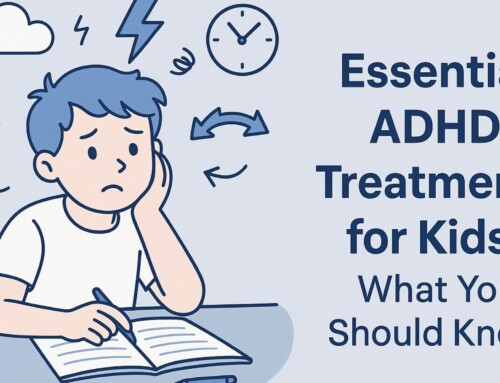Tips to Reach Defiant Children
The word “defiant” is characterized by a boldly resistant or challenging attitude, with synonyms including rebellious, insolent, and insubordinate. Here are grounded, respectful strategies to help reach and support defiant children, especially when their behavior feels challenging or resistant. It is essential to approach these situations with empathy and understanding, recognizing that defiance can often stem from various underlying issues, such as frustration, a desire for independence, or even unmet needs. By fostering an environment of open communication and trust, counselors, teachers, and caregivers can create a safe space for children to express their feelings. This supportive atmosphere not only encourages children to share their thoughts but also empowers them to develop self-regulation skills. Additionally, implementing consistent routines and clear expectations can provide a sense of stability, making it easier for children to navigate their emotions and behaviors. Ultimately, these strategies aim to build a collaborative relationship that promotes positive behavior and emotional growth for school-aged kids.

What are the psychological impacts of consistently expressing defiance?
Consistently expressing defiance can lead to various psychological impacts, including increased stress and anxiety. It may foster a sense of empowerment or autonomy but can also cause interpersonal conflicts and isolation. Over time, this behavior might result in diminished self-esteem and hinder effective communication with others. Balance is crucial.
1. Stay Calm and Regulated
- Children are highly perceptive and absorb the energy around them, which can significantly impact their behavior and emotional responses. When faced with defiance from a child, responding with frustration or anger can often lead to an escalation of the situation. This is because children look to adults for guidance on how to manage their own emotions and reactions. By modeling patience, understanding, and empathy, parents and caregivers can help children learn healthy ways to express themselves and resolve conflicts. It is essential for adults to remain calm and composed when dealing with challenging behaviors in children, as this sets a positive example and promotes a more constructive approach to addressing issues.
- When dealing with a situation that requires calmness, it’s essential to lead by example. Take a deep breath, lower your voice, and demonstrate the level of composure you wish to see in others. By modeling a sense of tranquility, you can effectively influence those around you to follow suit. This approach not only helps diffuse tense situations but also fosters a sense of control and rationality. Remember, maintaining a composed demeanor can have a profound impact on the overall atmosphere and outcome of any interaction or conflict resolution process.
- It’s essential to remind yourself that behavior is a form of communication, not necessarily a personal attack. When someone behaves in a certain way, it may be due to various reasons such as stress, emotions, or past experiences. By understanding that behavior is a message, you can approach situations with empathy and seek to understand the underlying cause rather than taking it personally. This mindset shift can lead to more effective communication and conflict resolution in both personal and professional relationships. Remembering this simple mantra can help you maintain perspective and respond thoughtfully in challenging situations.
2. Focus on Connection Before Correction
- Defiant children often exhibit guarded behavior because they have experienced feeling misunderstood or powerless in various situations. This sense of being unheard or lacking control can lead them to put up emotional barriers as a means of self-protection. It is essential for parents, educators, and caregivers to recognize the underlying reasons behind a child’s defiance and work towards creating example sentences that build trust and understanding with the child. By providing a safe and supportive environment where their emotions are acknowledged and their voices are heard, these children can gradually lower their guard and develop healthier ways of expressing themselves. Communication, empathy, and setting clear boundaries can all play crucial roles in helping defiant children feel validated and empowered in their interactions.
- Building trust with your audience is crucial in the digital world. One effective method is to demonstrate that your platform prioritizes security and user safety through transparent privacy policies, secure payment gateways, and clear data protection communication. Additionally, valuing user autonomy and respecting choices can alleviate concerns about control. Empower users to make informed decisions and customize their experience to show respect for their preferences. Creating open dialogue, actively listening to feedback, and addressing concerns promptly further strengthen trust. Key elements include transparency, reliability, and a commitment to a safe online environment.
- Building strong relationships with others, especially children, can be achieved through small moments of connection. Taking the time to sit beside them, inquire about their interests, and share a laugh can go a long way in fostering trust and understanding. By investing in these simple yet meaningful interactions, you create opportunities for deeper connections and communication. This approach not only helps to strengthen relationships but also allows for genuine bonding experiences that can positively impact both parties involved. Remember, it’s often the little things that matter most in building lasting connections with those around us.

3. Offer Choices Within Limits
- Defiant children often resist because they feel a loss of control, so acceptable options can help.
- Give two acceptable options:
“Would you like to do this sitting at your desk or on the rug?”
“You can use a pencil or a pen—your choice.”
4. Acknowledge Their Feelings, Not Just Their Defiant Behavior
- Validating their emotions doesn’t mean excusing the behavior.
- Try:
“It seems like you’re really frustrated.”
“I get that you don’t want to do this right now.”
5. Avoid Power Struggles
- If a child is refusing, escalating the demand usually leads to a standoff.
- Instead of “Do it now,” try:
“Let’s take a break and try again in a few minutes.”
Or: “I’ll be here when you’re ready.”
6. Reinforce Small Wins
- Catch moments of cooperation—even if tiny—and affirm them:
“You stayed in your seat even though you were upset. That shows real strength.”
“Thanks for giving it a try—that mattered.”
7. Use Nonverbal Strategies
-
- A calm gesture (open palm, pause)
- Visual cues or routine cards
- Proximity and eye contact without talking
Defiant kids often tune out verbal correction. Try:
8. Focus on the “Why” Behind the Behavior
- Defiance is a common protective strategy individuals adopt due to factors like fear, shame, lack of skills, or unmet needs, as outlined in a thesaurus and dictionary of psychological terms. In challenging situations, it acts as a defense mechanism against perceived threats. Fear often triggers defiance, leading people to resist authority out of insecurity. Shame can also prompt rebellious behavior to avoid embarrassment. Additionally, a lack of skills may cause individuals to act defiantly when they feel ill-equipped to meet expectations. Unmet emotional, psychological, or physical needs can drive resistance as a way to assert control over their circumstances. Understanding these root causes can help address underlying issues and promote healthier coping strategies, enabling individuals to develop adaptive responses and foster positive outcomes in their lives.
- Ask yourself: What is this child trying to communicate or protect?
9. Teach Coping and Repair Skills
-
- “What could you do next time you feel like that?”
- Practice a redo or coping strategy (deep breathing, asking for help, taking space).
When the child is calm, help them reflect:
10. Be Consistent, But Gentle With Children
- Structure is essential for creating a sense of safety and security, particularly for children growing up in turbulent or unpredictable environments. When kids have a structured routine and environment, it provides them with a sense of stability and predictability, which can help reduce anxiety and stress. Consistent routines help children know what to expect, allowing them to feel more secure and confident in their surroundings. This structure can come in the form of daily schedules, clear rules and boundaries, and reliable caregivers who provide support and consistency. By establishing a structured environment, parents and caregivers can create a safe space where children can thrive and develop to their fullest potential.
- Setting firm boundaries is essential for maintaining healthy relationships and self-respect. However, it’s equally important to approach boundary-setting with empathy rather than shame. When establishing boundaries, it’s crucial to communicate assertively and respectfully, ensuring that your needs and feelings are heard and understood by others. By setting boundaries with empathy, you show compassion towards yourself and others, fostering mutual respect and understanding in relationships. Remember that boundaries are not meant to isolate or punish others but to create a safe space where everyone’s needs are acknowledged and honored. Practicing empathy in boundary-setting can lead to stronger connections, improved communication, and overall well-being for all parties involved.

Filed in: ADHD, Aspergers, Autism, Blog, Children, Defiance Teens Slider, Oppositional Defiance Disorder, Orlando, Tessa McKee
Share This Story, Choose Your Platform!
Total Life Counseling Center consists of Licensed Counselors, masters level therapists, Español counselors, Licensed Mental Health Counselors, business coaches, and image enhancement coaches who provide counseling for emotional, mental, physical and spiritual care including marriage, individual, family, substance abuse and more. TLC’s family, trauma and marriage experts have been interviewed on National and Local TV/Radio over 200 times for their expert advice on Fox News, OWN, WETV, ABC’s Medical Minute and more. Our skilled counselors are relational, approachable and specialists providing therapy services in the Central Florida area including: Orlando, Winter Park, MetroWest, Windermere, Dr. Phillips, East Orlando, Lake Mary, and Clermont, Boca Raton Florida, and Dallas, TX.






